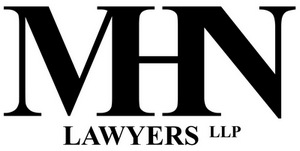One of the areas that we are commonly asked about are “record checks” and “pardons”. This is an area fraught with misunderstanding not only what are “records” but what the consequences are of certain “record checks”. The Canadian Civil Liberties Association has recently taken a comprehensive position on this point for good reason.
Record Checks:
Most people will commonly think that a “record” means a “record of criminal convictions”. Unfortunately, a “police record search” or a “vulnerable sector search” goes well beyond a common understandings and expectations and often include situations involving acquittals, withdrawals, discharges and even simple investigations of criminal offences. Many people are surprised when an old, isolated event that never lead to a criminal conviction, makes it onto a report from a police agency where that person is volunteering as a driver for his/her child’s and friend’s school-realted activities. It is important to first know that what is being asked is to provide an authorization for the release of the information from the police agency. Such authorizations are usually on pre-printed forms provided by schools and other organizations. It is important to know what you are authorizing and what information may be provided even if you had an incident of minor police investigation or involvement. As with any request, make sure you know your rights and the consequences that can follow.
In Ontario, there is a recent development with the adoption of Provincewide standards and rules announced by the Ministry of Ministry of Community Safety & Correctional Services: http://news.ontario.ca/mcscs/en/2015/06/police-record-checks-in-ontario.html may bring some clarity to this area.
Pardons and Record Suspensions:
The common term often understood was a pardon. Many people think that this erases the incident and wipes the slate clean. In Canada, a pardon is now known as a “Record Supension”. Generally, a record suspension can be applied for 5 years after serving the sentence for a summary (less serious) offence and 10 years after serving the sentence for an indictable (most serious) offence. A major problem arises when people are applying for jobs or completing forms which ask about a “criminal charge” or “criminal record”. It is of little effect to answer “I was convicted of a criminal offence but received a record suspension”. In addition, for those travelling to the USA, a Canadian criminal conviction is recognized but not a Canadian record suspension and could create problems for entry into the USA. Significant consequences follow people convicted of criimal offences well-beyond serving the sentence. The slate is not wiped clean even with a record suspension.
